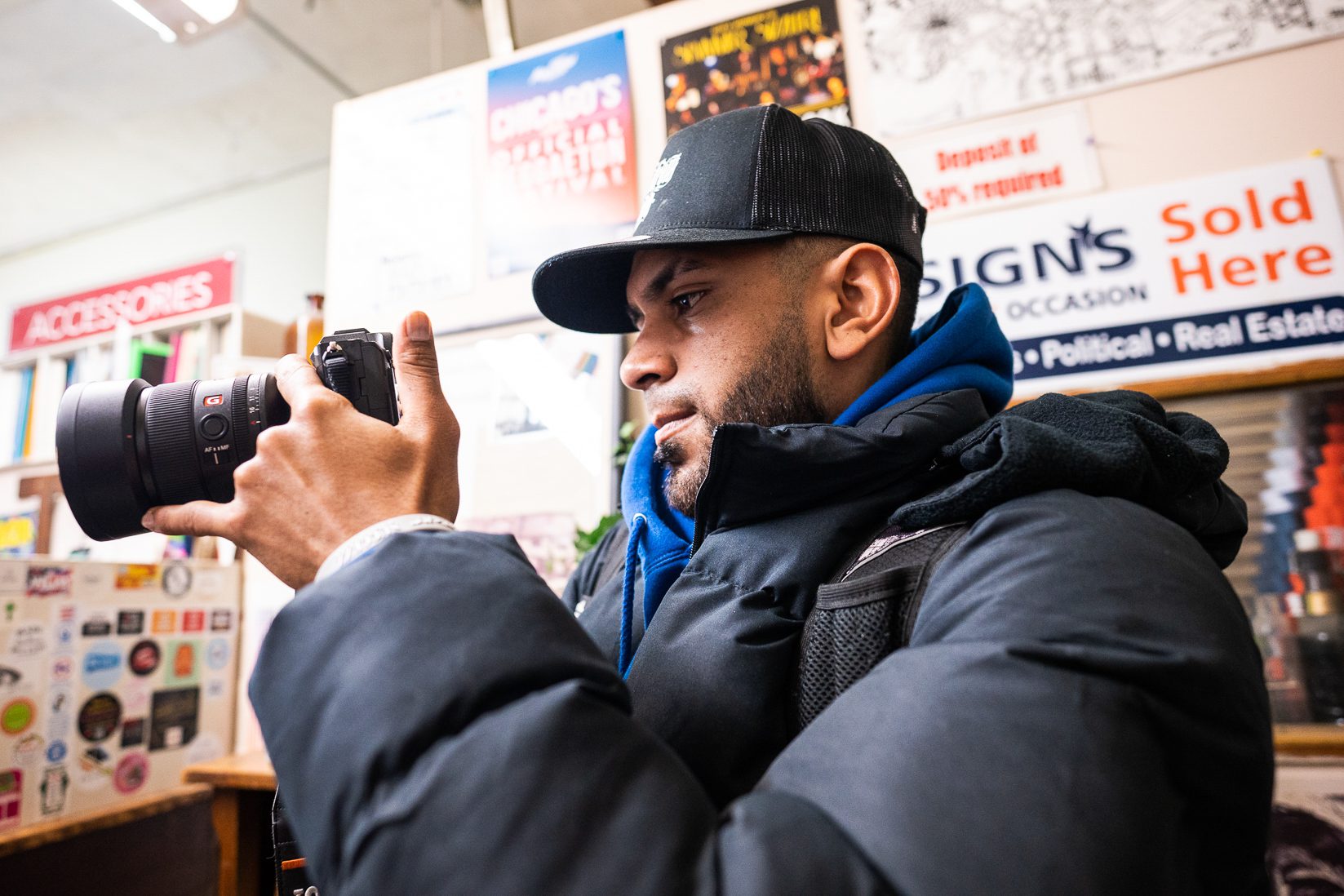 Colin Boyle/Block Club Chicago
Colin Boyle/Block Club ChicagoJesús David Lucena Castillo lleva más de cinco años separado de su familia. Durante el Día de los Muertos, un encuentro amistoso cambia su rumbo en la ciudad.
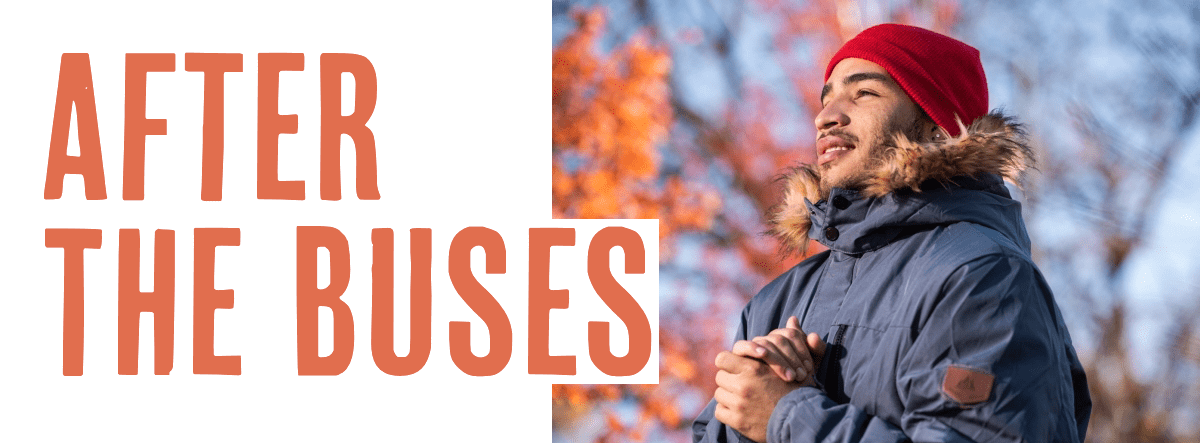
PILSEN - Jesús David Lucena Castillo pasó el Día de los Muertos haciendo lo mismo que ha hecho la mayoría de los días desde que llegó a Chicago: vagar por las calles, buscando trabajo.
"¿Hablas español?" preguntó Castillo a alguien que pasaba por la calle 18 del barrio de Pilsen, puerto de entrada de inmigrantes mexicanos.
Noticias que ponen el poder en el punto de mira y a las comunidades en el centro.
Suscríbase a nuestro boletín gratuito y reciba actualizaciones dos veces por semana.
Castillo, de 24 años, es uno de los miles de migrantes enviados aquí en autobús desde Texas en el marco de la protesta del gobernador Greg Abbott contra las políticas federales de inmigración.
El activista comunitario y fotógrafo The Kid, de Pilsen, pasó por allí mientras Castillo buscaba trabajo. Los dos empezaron a hablar y Kid se devanó los sesos pensando en cómo podía ayudar a Castillo.
Entonces tuvo una idea: podía pagar a Castillo para que aprendiera fotografía y fuera su fotógrafo personal.
Castillo tenía poca experiencia en fotografía, pero aceptó.
Pronto, todo encajó.
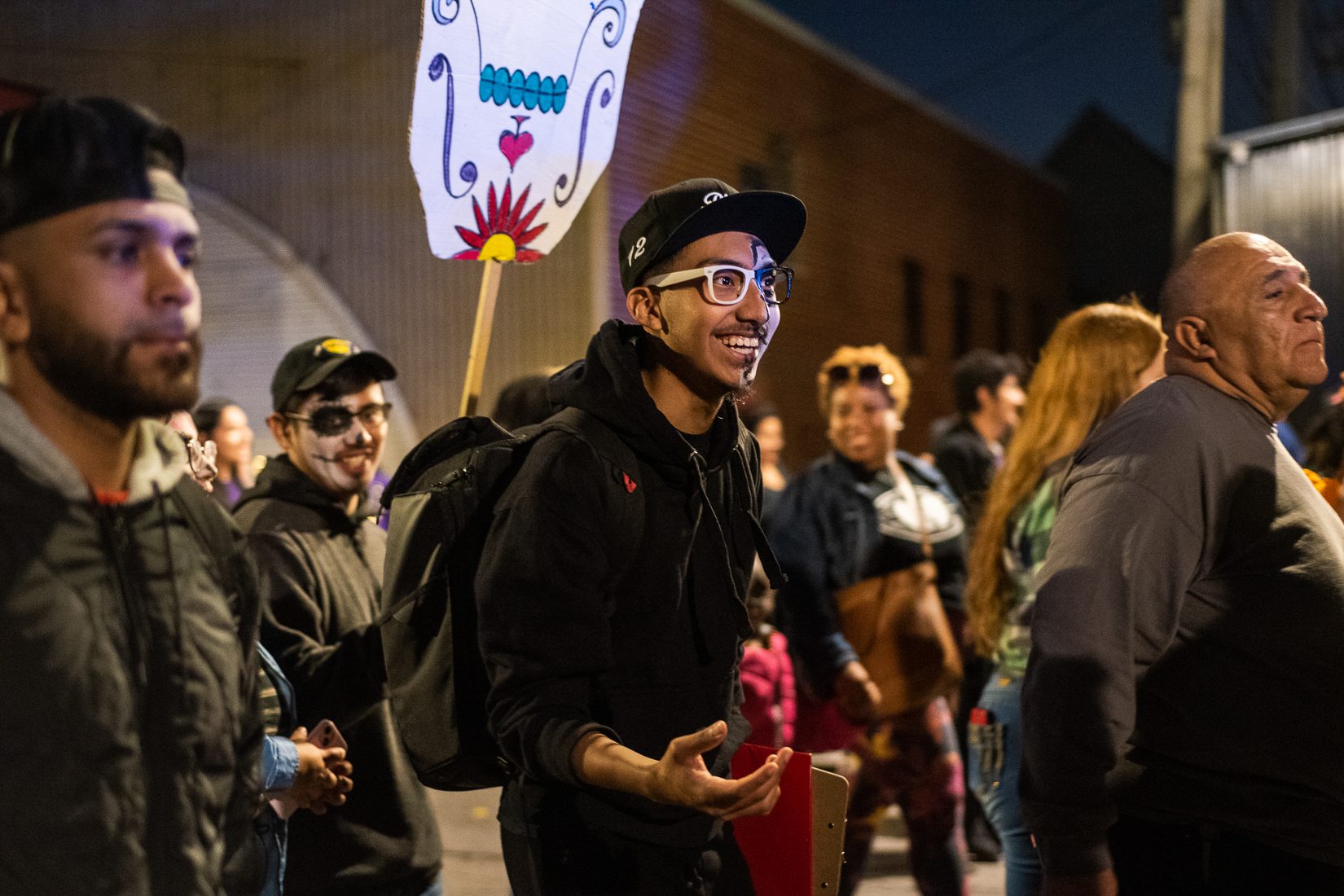
Crucé ocho países prácticamente con $200
Nacido y criado en El Tocuyo, un pueblo del valle de la provincia de Lara (Venezuela), Castillo soñaba con ser jugador profesional de béisbol.
"El béisbol era prácticamente lo único que sabía hacer en Venezuela. Entrenaba de día y prácticamente de noche", dijo Castillo en español.
Los padres de Castillo "lo dieron todo" para apoyar sus esfuerzos en el béisbol, a pesar de que "no tenían nada que dar", dijo.
Cuando Castillo se lesionó, su familia no pudo reunir el dinero necesario para los procedimientos médicos y la fisioterapia que le permitieran volver al campo de juego.
Con los sueños de su vida en el banquillo, Castillo se trasladó a Bogotá (Colombia), donde trabajó en la construcción, repartió paquetes en moto y ejerció de camarero para mantener a su familia.
"No ha sido fácil para mí, pero sé que todo tiene un propósito en esta vida, y sé que las puertas se abrirán", dijo.
Tras cinco años en Colombia, Castillo seguía sin ganar lo suficiente para mantenerse a sí mismo y a su familia en Venezuela. Su hija de 6 años tiene problemas de salud y necesita atención médica, dice.
"Han sido años -cinco años- sin poder abrazarlas, sin poder estar con ellas", dijo. Para Castillo, su hija es su "vida".
Castillo se propuso trabajar en Estados Unidos. Este verano, él y ocho amigos iniciaron su viaje a la frontera entre México y Estados Unidos, dijo.
Seguir leyendo
"Tomé la decisión con unos amigos de irme para aquí sin dinero, sin nada. Crucé ocho países prácticamente con $200, era lo único que llevaba en el bolsillo", dijo.
Durante el viaje, el grupo de Castillo se cruzó con una joven herida en la Brecha del Darién, una traicionera selva entre Colombia y Panamá. Castillo se detuvo para ayudarla, pero sus amigos le abandonaron, según dijo.
"No tenía comida ni dinero, y nunca pensé que pasaría por eso. Pero prácticamente comía basura por las noches", dijo Castillo, haciendo una pausa mientras se le llenaban los ojos de lágrimas. "Incluso por la noche, lloraba solo porque no tenía compañía ni nada, pero era lo que había. Y sé que esos momentos me hacen muy fuerte ahora para no rendirme, para seguir luchando por lo que quiero."
Castillo continuó a pesar de las duras condiciones y las fuertes lluvias; siempre estaba empapado, dijo. Sin tienda de campaña, dormía en la orilla del río. Se quedó sin comida y el agua se llevó lo poco que le quedaba de ropa y carga.
"El río creció y se lo llevó todo, todo, todo, todo. Fue algo tremendo porque parecía una película", dijo Castillo.
Cuando podía comunicarse con sus padres, no les contaba las penurias porque "no quería preocuparles", decía.
"Aunque no conocen mi historia, están muy orgullosos de mí", afirma. "Estoy aquí por la voluntad de Dios. Sé que todo por lo que pasé, Dios velaba por mí y por eso me levantaba cada día."
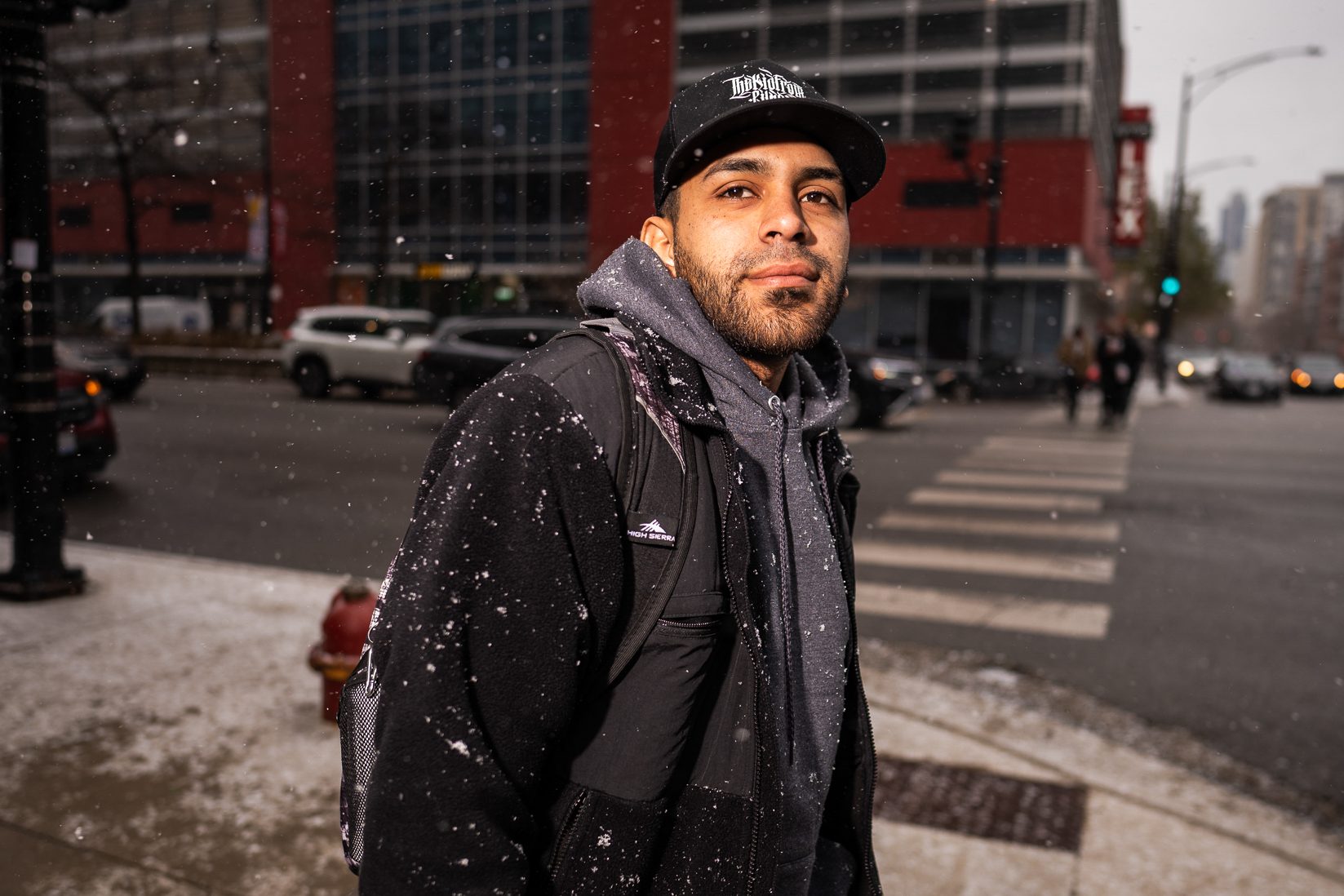
Después de dos meses, Castillo consiguió llegar a la frontera entre Estados Unidos y México el 10 de septiembre.
Planeaba reunirse con un amigo en Miami, pero sin dinero, su única opción era tomar uno de los autobuses que Abbott encargó. Su destino: Chicago.
"Yo... pensé mucho, y dije: 'Bueno, allí hay muchos deportes. Hay dos equipos de béisbol de grandes ligas'", dijo Castillo.
Castillo se reencontró en Internet con la chica a la que ayudó en el viaje. Ella también logró cruzar la frontera y vive cerca de Washington.
Simplemente le pregunté por un trabajo. Y él me ofreció su mano".
El Día de los Muertos llenó el corazón de Kid from Pilsen, ya que la festividad significaba que podría honrar a los amigos perdidos a causa de la violencia armada en Chicago.
Sentó a Castillo para mostrarle un documental fotográfico, subtitulado en español, y su propia cámara Sony.
Kid le cortó el pelo a Castillo, le presentó sus platos favoritos de Chicago y compartió su pasión por la fotografía con su nuevo amigo.
Castillo dice que es una persona muy tranquila, pero que ha cambiado desde que cogió la cámara por primera vez.
"Me gusta cuando me pongo la cámara al hombro. Me siento diferente, como si fuera otra persona, [alguien] más grande", dijo Castillo.
El segundo día del Día de los Muertos, Castillo fotografió a The Kid haciendo circular peticiones en la procesión de Muertos de la Risa en Pilsen.
"Tiene un talento innato", dijo Kid.
Pronto, Castillo incorporó diferentes ángulos a su fotografía y desarrolló un ojo para documentar momentos clave.
Castillo es cuatro años mayor que Kid y su amistad ha crecido rápidamente, dicen. Han compartido lecciones el uno con el otro, ya sea una nueva palabra en un idioma extranjero o añadir patatas fritas calientes a un sándwich para realzar el sabor.
"En un momento de desesperación, simplemente estaba preguntando por un trabajo", dijo Castillo. "Y él me ofreció su mano. Ya más que un amigo, se está convirtiendo prácticamente en un hermano".
"Vi a mi padre en él: los mismos ojos", dijo Kid. "Me hablaba del río y yo pensaba: 'Tío, a mi padre le pasó exactamente lo mismo'. [Me ha enseñado que puedo tener un corazón más abierto, que puedo hacer amigos, que puedo estar abierto a diferentes perspectivas".
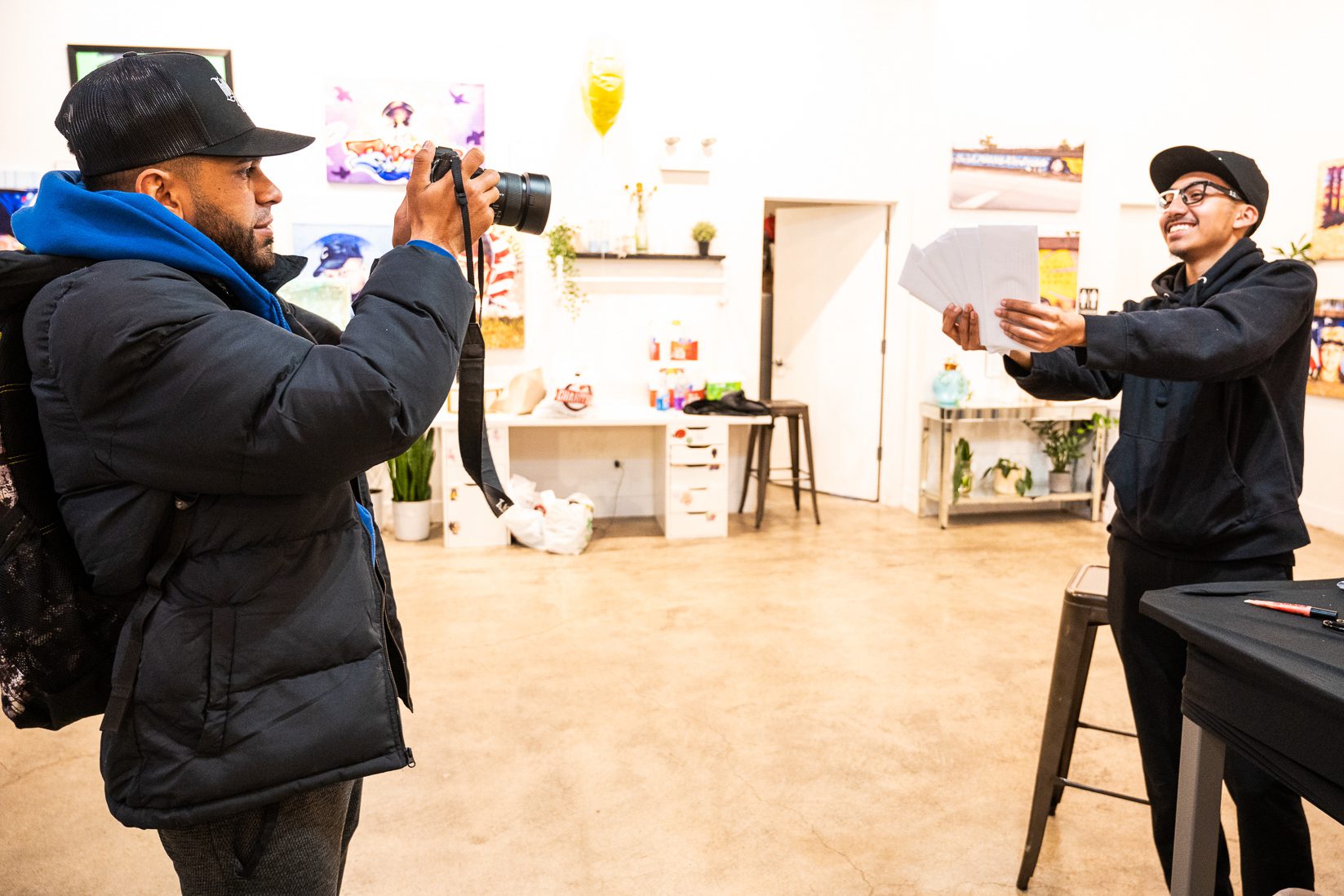
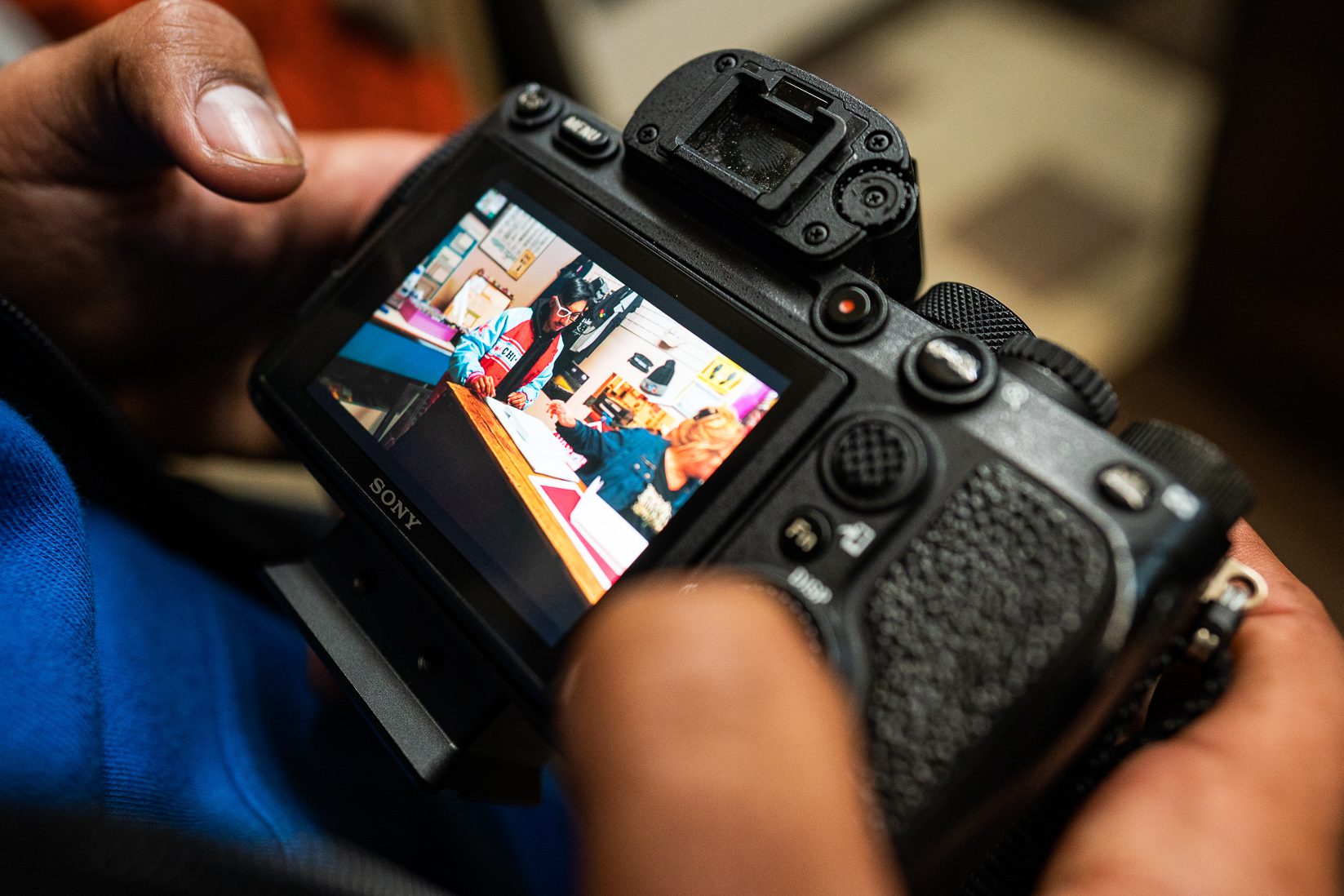
El futuro
Castillo se está adaptando bien a Chicago, una ciudad de la que se ha enamorado y el lugar donde vio la nieve por primera vez. Vive en en una antigua escuela de Bronzeville que la ciudad convirtió en refugio en 2020. y utilizando Duolingo para aprender inglés.
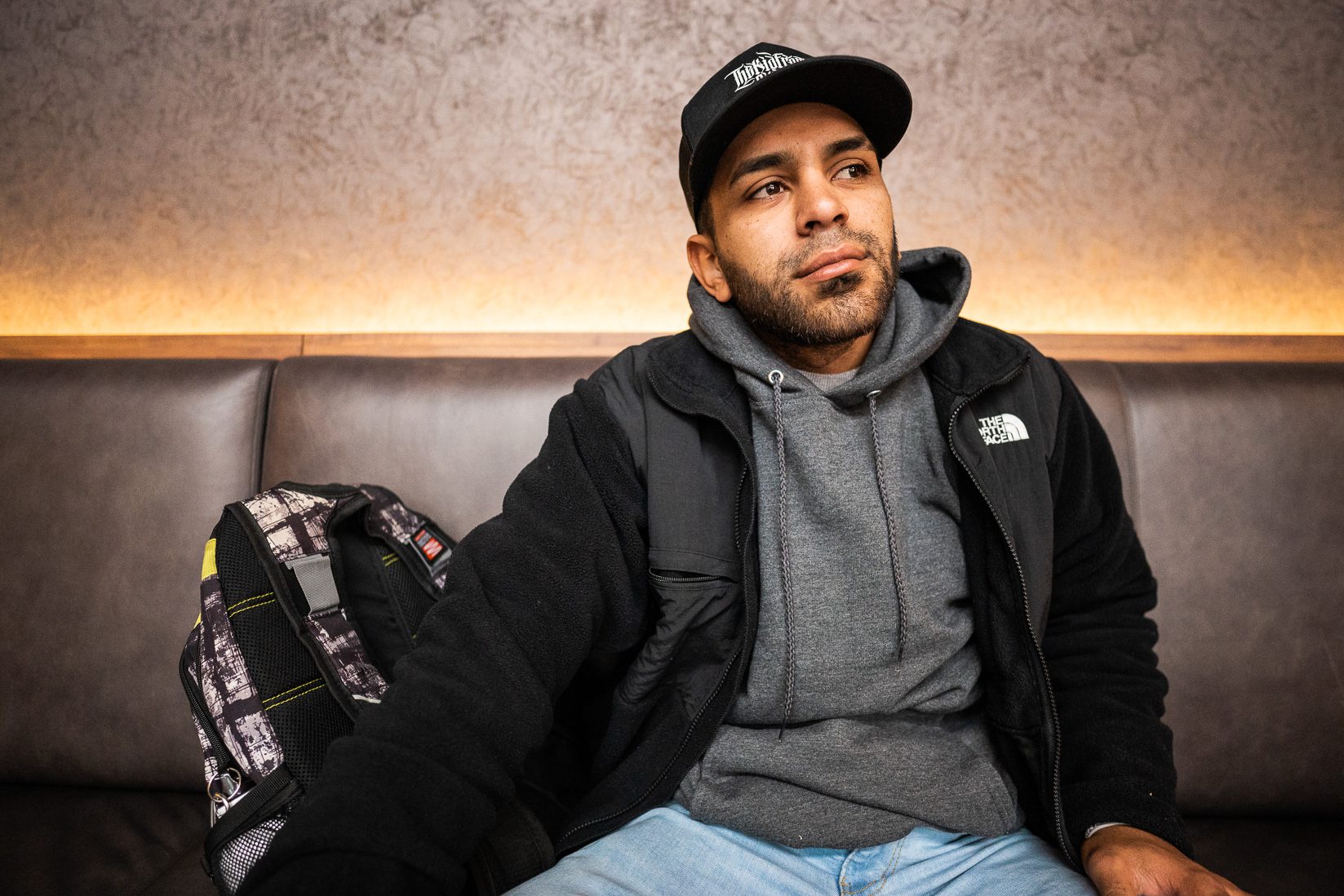
La fotografía ha cambiado drásticamente la visión de la vida de Castillo mientras se adapta a Estados Unidos, y ha modificado su enfoque en medio de las tribulaciones de ser emigrante en un nuevo país.
"Salgo del refugio con problemas", dijo. "Pero... pongo la cámara y todo cambia, todo se vuelve diferente.
"Nunca había pensado en esto ni en hacer fotos, pero es algo... de lo que me estoy enamorando".
A pesar de las dificultades a las que se ha enfrentado hasta la fecha, Castillo espera poder cumplir su sueño de reunirse con su familia tras años de separación.
"Lo que más quiero es estar con ellos, para que me vean superarme", dijo.

